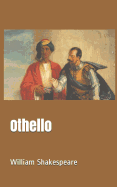

This example constitutes a standalone offprint, certainly never bound, being loose quires uncut and untrimmed, and presumably intended for separate circulation prior to completion of the series. Library Hub records only four institutional holdings (not necessarily complete) for Temasa worldwide (Koç University Istanbul, SOAS London, and two in Germany). Kirk Anbar Matbaasi published a sequence of literary works by Bedreddin and Rifat from 1875, predominantly theatrical translations from French, each with running pagination and making up a serial publication entitled Temasa (Theatre). Othello treats various themes that have special resonance for Turkish audiences: the theme of the 'other', alienation, loneliness, the life of a soldier - even the problem of Cyprus" (Gönül Bakay, "Turkey and Shakespeare").

It has been adapted under various names - including 'The Revenge of the Negro' - and most famous Turkish actors have played it. Othello remains today "probably the most popular play with Turkish audiences. was Otello" ("Othello and the Other: Turning Turk", Times Literary Supplement, 19 October 2001). This would have been especially apparent if, as is likely, the original pronunciation.

'Othello' and that of the general enemy 'Ottoman'. Jonathan Bate observes the "consonance between the names of. Othello was next to be translated and would have been of special interest to the Ottomans for its Moorish hero. Güllü Agop's Turkish version of Romeo and Juliet, which was performed to great acclaim though never published, is thought to have been the first translation into Turkish. Shakespeare was becoming popular at this time, after the Armenians had brought a production of Shakespeare to Turkey in 1862. First edition in Ottoman Turkish, done by Hasan Bedreddin and Mehmet Rifat from the French translation of Jean-Francois Ducis, and performed 1867 77 in Gedikpasa theatre in Istanbul, the first theatre in Turkey where plays were performed by Turkish actors rather than travelling troupes.


 0 kommentar(er)
0 kommentar(er)
